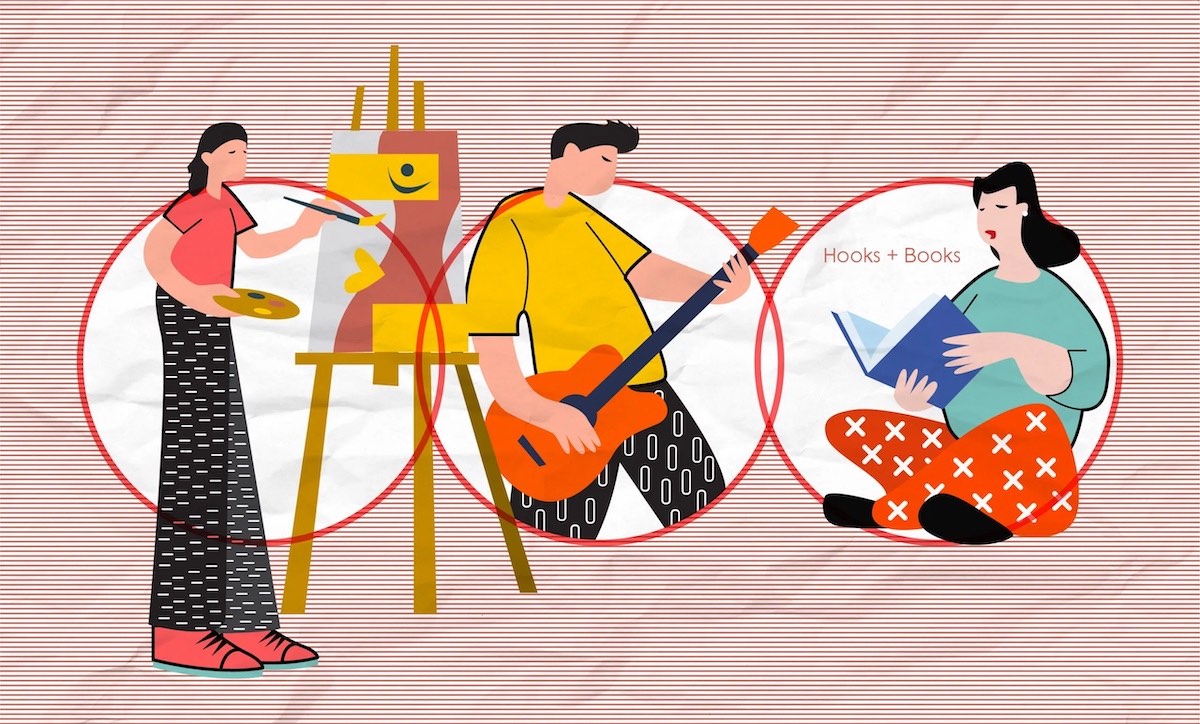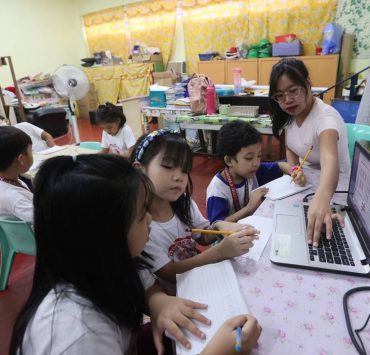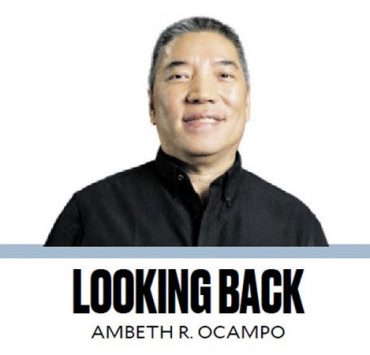A Friday of Pride

It was a Friday night of preparation. I was organizing my belongings and clothes for an early trip to La Union. After zipping up my backpack, I left my apartment and went down to buy some midnight snacks at the nearby convenience store.
A few blocks away were a stage and lights. I could hear a woman speaking as if she were in a debate. When I looked closer, I saw the stage adorned with the colors of the rainbow and knew exactly what was happening. I went back to my apartment, changed into decent clothes, and ran to the event.
I have always been a pageant fan. I have watched national pageants online and even live multiple times. One of my favorite pastimes is to listen to pageant analysts follow a contestant’s journey to the crown.
But that Friday night was different. It was a Miss Gay pageant, a barangay-level competition. It was already the Q&A round, so I knew the night was almost over. The last woman holding the mic gave a lengthy and comprehensive answer about what best represents her. She received multiple claps from the audience. In pageant terms, “lumamon ng mic.”
I did not clap because I was already expecting her to give an outstanding Q&A performance. I knew her. I have watched her clips online and how she “eats” the microphone every time she is on stage. She first caught my attention when I saw her Q&A clip online answering the question, “Is it necessary for common people to acknowledge and follow LGBTQIA+ demands to be called by proper pronouns such as he, she, or they?” She is a professional teacher, so I knew she was about to give a lecture to that crowd.
She said her students don’t know whether to call her “sir” or “ma’am.” It was an expression of a common struggle faced by transgender women in our country. The highlight of her answer was when she said that using the right pronouns is a recognition of her fight and journey as a transgender woman, and more importantly as a human being. She also encouraged the audience to change their mindset and respect the community’s demand to be called according to their preferences. She won the title in that competition.
That Friday night, she was introduced in my barangay as “Liza Soberano.” But I know her as Yeng Lavitoria, one of the best speakers in gay and trans pageantry of her generation. After her answer, I whispered, “Word, mother.”
It was my first time watching her live, alongside other “all-star” candidates, Patricia Payumo and Aya Garcia, who were the Top 3 finalists. I have watched both of them online in their pageant stints, and they are already household names in trans pageantry. Seeing them that night, not minding the heat and sweat in the middle of a crowd, was a cathartic moment for me as a queer person.
It was also my first time watching a Miss Gay Pageant. I always told myself that my queer experience would not be complete until I watched one. Some were happening back in my province, but I was not able to watch because I was too scared that someone I knew or a relative would see me. So witnessing one in the metro, where almost no one knows my name, was liberating.
Miss Gay pageants back then were more of an entertainment show—a comic relief for the common people during fiestas. But times are changing. Miss Gay pageants are now a battle not just of beauty and talent but also of the best speech in the Q&A portion, which usually determines who will take the crown. It is almost like giving a TedTalk but in the streets.
In times when the Sogie bill is not yet passed, and transgender women are still harassed, discriminated against, and even killed just for being who they are, this is huge.
Queens like Yeng Lavitoria took the risk of being humiliated in front of conservative crowds like Aling Tasing and Mang Boyet whenever they would speak of transgender rights, queer struggle, and demanding human rights. But there they were, the masses clapping as Yeng wore the crown and sash.
It was a win for me, too. More than the fascination of watching a Miss Gay pageant for the first time, it was a realization that our ways of fighting for our rights do not just revolve around discussing the Sogie bill in our echo chambers or joining Pride marches. It could also happen in barangay pageants where common people came to be entertained and went home with the words of a queen in their minds.
While we may have a long way to go in making people understand our collective struggle and fight with us toward true liberation, I would like to think that a Friday night like this is a step forward. I may not be sure if the words will stay in the minds of that crowd or if they will change how they view us, but normalizing these narratives in their thought process is a battle worth fighting.
It may be just another pageant night for the people of my barangay—a night where queens like Yeng compete, share stories and talents, collect cash prizes, and join another one in the hopes of a crown and claps from the crowd—but for me, that Friday night was a moment of pride and liberation.
*The writer wishes to be anonymous.
—————-
N, 25, is originally from Nueva Ecija and currently works and lives in Makati. They hope to watch more pageants live.

















